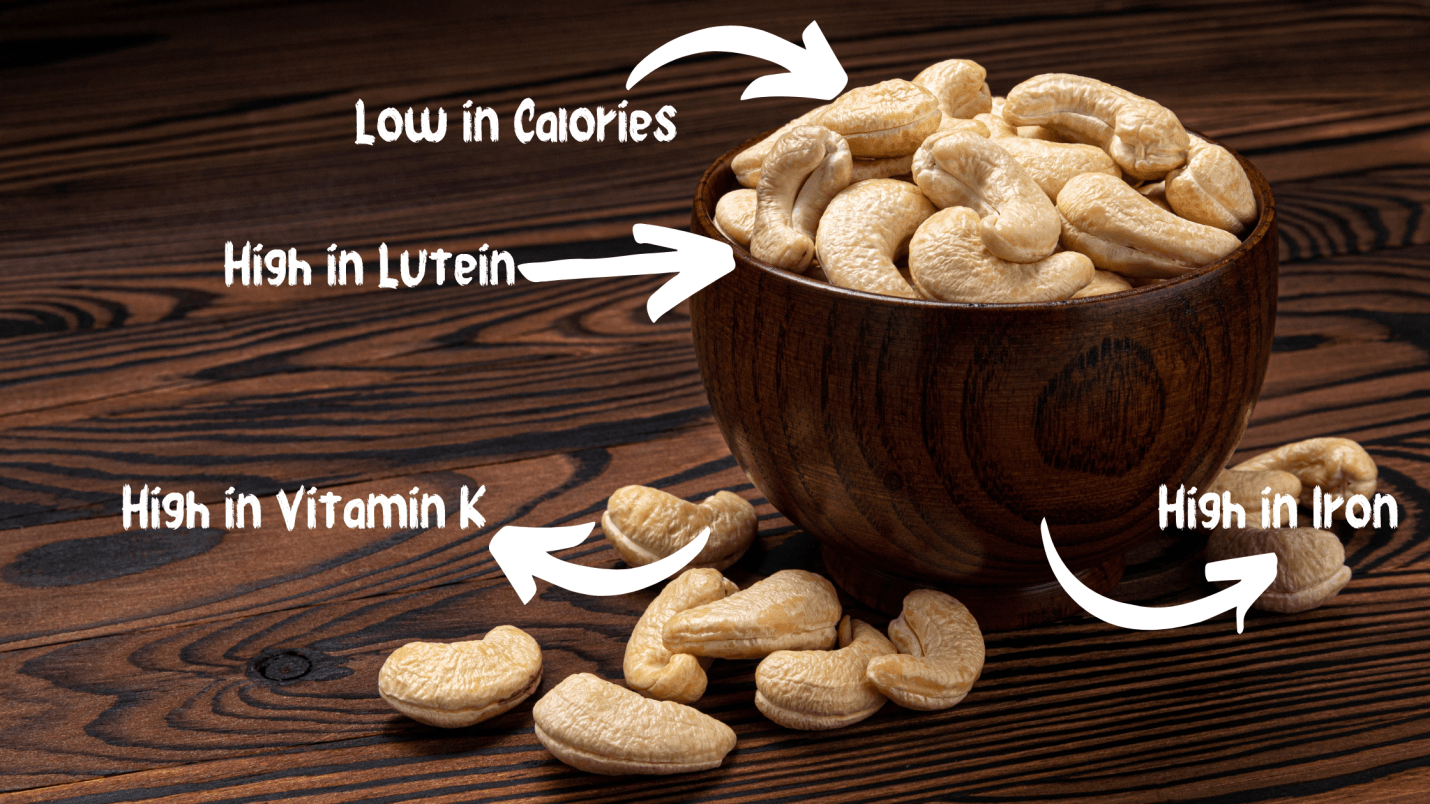
Cashews, which originated in Brazil, have become a popular ingredient in Indian households for a long. Despite their country of origin, cashew nuts are grown in India on a very large scale and India is one of the prime exporters of cashews today.
Cashew or Kaju is commonly consumed raw, in gravies, roasted, salted, in cupcakes, and a variety of other ways. But, have you ever wondered;
Why cashews are so famous worldwide?
Why it is that cashew is regarded as the King of the Nut-Kingdom?
Why are cashews regarded as sophisticated nuts?
The answer lies in the nutritional composition of Cashew-nuts. Cashew nuts are a treasure box of minerals and many other important nutritional components.
This article reviews the nutritional and health perks of cashews to determine, how they are essential for you.
The Nutritional composition of Cashews:
The nutritional value of cashew is given in the table below. According to new scientific findings, the energy content of cashews is 16% lower than what is typically stated on current food labels and databases (1). Also, cashews are a good source of proteins and low in carbohydrates. The lipid content of cashews makes them a good source of sustained energy release.
Cholesterol and Cashews
The human body contains two types of cholesterols, aka Lipoprotein. One is LDL (bad guy) and the other is HDL (good guy). Cashews lower LDL cholesterol while increasing HDL carrying capacity. HDL is in charge of absorbing cholesterol from the heart and transporting it to the liver for breakdown. According to a recent study published in The American Journal of Clinical Nutrition (2), 42 g of cashews per day may not raise “bad” cholesterol levels. The study also discovered that incorporating 42 g of cashews into a typical diet may help reduce an enzyme whose concentrations are linked to the removal of “bad” cholesterol from the blood (2).
So, Cashew nuts, contrary to popular belief, are good for our heart health. Cashew nuts are high in essential fatty acids, potassium, and antioxidants, all of which are good for your heart. It contains phytosterols, phenolic compounds, and oleic acid, which promotes heart health and strengthen blood vessels.
High in Minerals
A handful of cashews contain approximately 13 mg of calcium and 160 mg of potassium (2), both of which are the most important electrolytes of the human body. Cashews are also high in iron, phosphorus, zinc, and manganese, the majority of which are macro minerals, meaning they are needed in large quantities by our bodies. Minerals are necessary for your body’s health. Minerals are used by your body for a variety of purposes, including the proper functioning of your bones, muscles, heart, and brain. Minerals are also required for the production of enzymes and hormones.
Rich source of Bioactive Compounds
Cashews, like other nuts and seeds, are considered antioxidant powerhouses (3).
Antioxidants are beneficial to plant compounds that keep your body healthy by neutralizing free radicals, which cause damage. As a result, this aids in inflammation reduction.
Cashews are also high in polyphenols and carotenoids, the antioxidants helpful with arthritis and inflammation (4).
Cashews are also a good source of choline. Choline is an important dietary component essential to healthy cell functioning (5).
Conclusion
When it comes to nuts, cashews have been the undisputed champion for many years. Its delicious flavor and creamy texture have cemented its place in Indian and international cuisines. Cashew is high in good cholesterol, minerals, vitamins, iron, and bioactive components, in addition to its delicious flavor and aroma. All of which are necessary for the human body to function normally. Cashews can also help with weight loss, sustained energy release, and heart health. Incorporating cashews into your daily routine can improve your overall health and well-being.
Also, if you are health conscious and want to buy pickles, you can check out our collection of homemade achars from our store.
